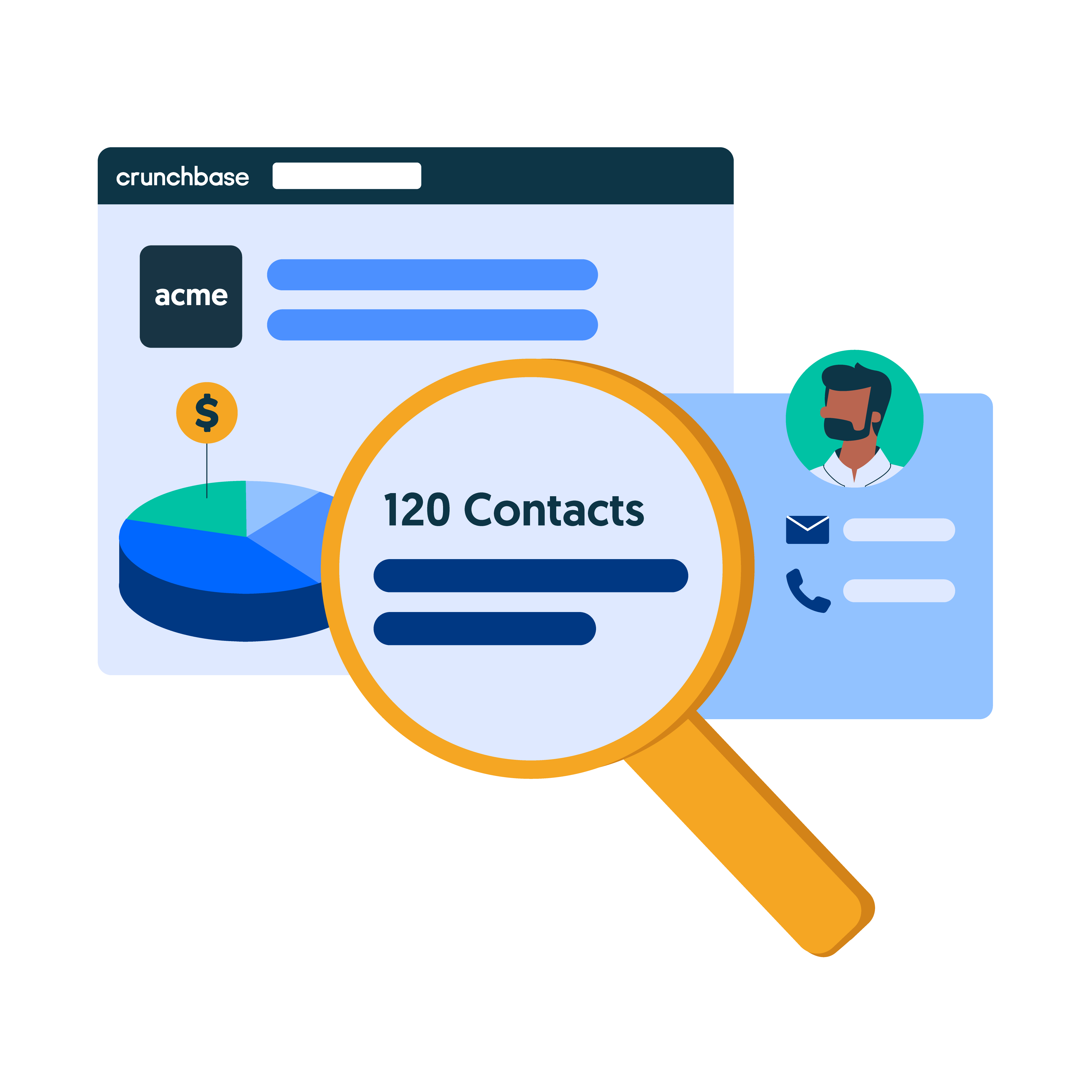Should companies plan for an economic recession in late 2022 or 2023? Economists are unsure, though the odds continue to grow. Gross domestic product contraction, higher unemployment rates, and lower consumer spending all impact sales teams.
As economists debate the likelihood of a recession, sales teams should consider these three recession-proof strategies.
1. Land small deals with big companies
Sell to established companies such as legacy brands and large corporations to mitigate risk and increase the probability of future sales opportunities. “Land and expand” is a tried-and-true sales tactic, especially if your company is small or relatively unknown. A sales representative lands a small deal with a big company, and builds a solid relationship to sell into the organization.
Get personal. Prioritizing the relationship, even if the first deal is small, opens the door to a bigger deal in the future. Say what you mean, ask genuine questions and provide timely responses. Be proactive. Do extra research to ensure you understand the ins and outs of the company. You want to be a trusted advisor, so the company looks to you and your team as a thought leader to solve their problems. Be generous with this small deal so the company is willing to listen to your next ask.
Find your champion
As part of this process, find your champion — the specialist who loves your product or service, and also has power and influence within their organization. This stakeholder helps you sell your product or service from within. A champion is a high-ranking, mission-aligned or influential provider. Perhaps a doctor at the hospital where you want to sell medical products and need the approval of a chief medical officer. Maybe the head of IT champions your product and the CEO values his judgment.
The champion can press the decision-maker and even divulge pieces of the decision-making process. When you and your competitors are all vying for the same sale, your champion — especially if they are aligned with your mission — can justify your deal with metrics that favor your product. After the sale, this person can keep you abreast of internal developments that allow you to expand with an additional sale. In some cases, this person also offers referrals.
If a recession impacts leads, the land and expand technique (with the support of a champion) is a great way to sell fast and stay afloat. You don’t have to waste time prospecting, doing outreach and waiting for buyers to consider and approve your solution or product — all in all a lengthy process. You can also save time with the legal department by adding to a current contract instead of starting from scratch.
2. Connect with accounts that are vital to customers
Accounts with government funding such as health care, education and infrastructure, which are vital to a functioning society, will continue to receive support through a recession. For example, 16.3% ($1.2 trillion) of the 2022 fiscal year budget is relegated to Medicare. If your product or solution touches health care, you have a better chance of selling if it is covered by Medicare and Medicaid. Similarly, industries that build infrastructure can receive support from President Biden’s infrastructure law.
Identify funding sources
Research potential clients and get a clear idea of where their funding comes from. In health care, some entities like Federally Qualified Health Centers and community-based organizations are funded through grants. For example, if you have a solution that could support HIV care, connect with health care entities that receive funding from the Ryan White HIV/AIDS program. Outline ways in which your solution could support grant requirements.
Other companies might receive government funding in the form of subsidies — payments, tax breaks or other forms of economic support — given by the government to aid a particular sector. Tesla Motors, SpaceX and SolarCity all receive subsidies as part of the United States’ investment in sustainable energy services. Biden’s infrastructure law allots $7.5 billion in subsidies for electric vehicle charging infrastructure, so an account that supports this type of infrastructure will continue to receive support in a recession.
Search less. Close more.
Get alerted when a prospect raises new funding with Crunchbase’s automatic alerts.
Think like a customer
Get in the mindset of customers. What will be vital to them even during a recession? We know from the 2009 recession that products like the dependable Arm & Hammer laundry detergent, Keurig single-cup coffee instead of a daily Starbucks drink and Tupperware all thrived. The lipstick effect observes customers like to spend money on small indulgences like lipstick during hard times. Pet care is also touted as a recession-proof industry, and industries that serve kids are at least recession-resistant. Expand your idea of “necessary” to include “emotionally necessary” and connect with those accounts.
3. Prioritize client happiness after the original sale
Your work isn’t finished when the sale closes. As a partner onboards — or is in the early launch phase — work closely with client success to ensure your clients remain happy. Deeply understand your client’s business goals and success metrics, and at regular check-ins ensure that those metrics are on track. Client success needs to monitor if any of their KPIs have changed over time or how your service can adapt to their ongoing adjustments. It’s key to ensuring your partnership remains business-critical.
Happy clients trust you and view you as an advisor, especially in an unpredictable economy. The Trusted Advisor by Charles H. Green, Robert M. Galford and David Maister is a brilliant resource for sales teams looking to build, sustain and grow their client relationships. The book urges sales teams to put a high value on maintaining and preserving the relationship itself over the outcome of the current transaction. This might feel difficult in the short-term during a feast or famine recession, but economic downturns can last years. You need to set yourself up for long-term success. Be mindful, ask the right questions, and continue to treat the buyers as valued partners even after the sale.
Coordinate internally
Sales representatives only spend 37% of their time selling, and the rest nurturing relationships. Let client success help. Set up internal communication systems so that client success can note relationship advancements and additional client needs. Consider a CRM to establish an up-to-date overview. Has your champion mentioned an upsell opportunity to client success? Is it time to reach out as a trusted advisor after a miscommunication or rough patch? Trust grows. If you can demonstrate empathy and care throughout the relationship, you can maintain status as a trusted advisor in the eyes of your clients.
Build sales resources
Great client relationships are cumulative. Let each major win influence future sales. During a recession, you might find yourself with fewer leads, but more time on your hands. Use it. Build sales resources like whitepapers and use cases based on client success stories. These can not only be used as materials during the pitch, but also help you and other sales representatives keep track of how wins happened.
If the next months or years prove to be less abundant with leads, do your due diligence. Conduct research, build out internal resources, clean house and go above and beyond to keep your current clients happy. Try to land small deals with big companies now, and then work with your champion to expand into that company when the going gets tough. Make a list of potential companies that receive government funding, and others in industries that did not take a huge hit during the 2009 recession. You might not know exactly what the future holds for your sales team, but preparation is never wasted.
This article is part of the Crunchbase Community Contributor Series. The author is an expert in their field and we are honored to feature and promote their contribution on the Crunchbase blog.
Please note that the author is not employed by Crunchbase and the opinions expressed in this article do not necessarily reflect official views or opinions of Crunchbase, Inc.





